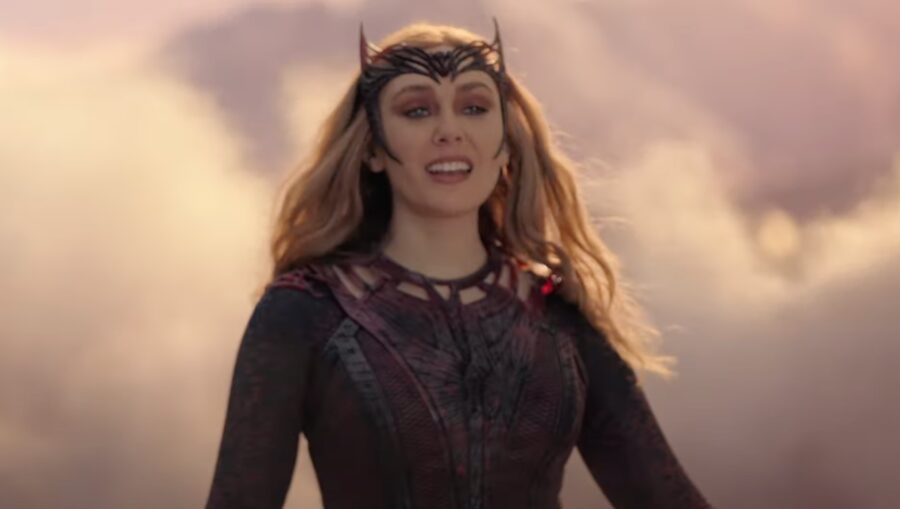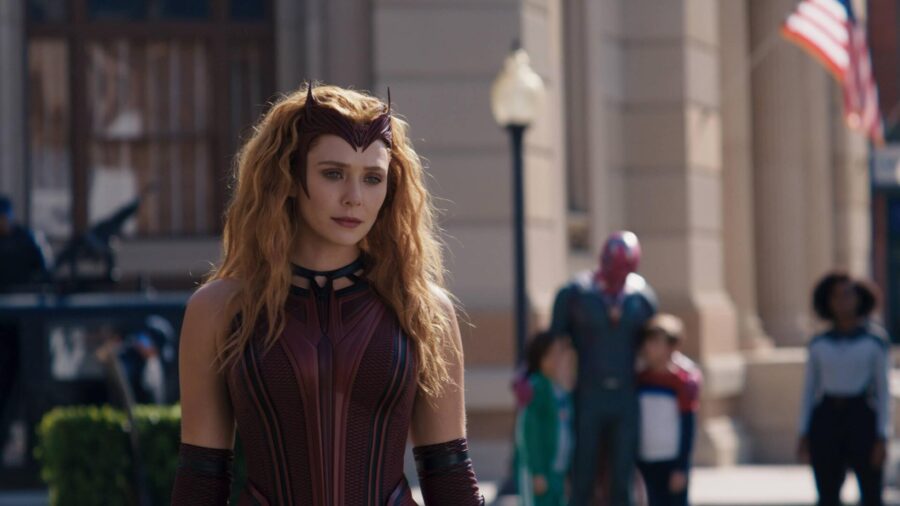Elizabeth Olsen Reveals Doctor Strange 2 Writers Didn’t Watch WandaVision
Elizabeth Olsen had to re-do Wanda's arc in Doctor Strange 2 because the writers didn't watch Wandavision.

The Marvel Cinematic Universe has maintained impressive internal consistency over the past 15 years, but many fans felt betrayed by 2022’s Doctor Strange in the Multiverse of Madness. The film seemingly ignored the arc of the film’s antagonist, Wanda Maximoff, from her Disney+ series WandaVision. Wanda’s actress Elizabeth Olsen explained to Vanity Fair (via SlashFilm) that Multiverse of Madness screenwriter Micahel Waldron had not seen WandaVision.
Elizabeth Olsen realized on the set of Multiverse of Madness that the film had created a character arc nearly identical to the one she played in WandaVision. “There could be parallel stories being told there of dealing with grief and loss,” she explained.
“Well, I proposed that to the writers of Multiverse,” Olsen recalled with a laugh. “I said, ‘Do you know what we’re doing in ‘WandaVision‘? Have you seen it?’ And, no, they had not seen it because it wasn’t finished yet.”
Waldron and Multiverse of Madness director Sam Raimi were surely briefed on WandaVision, but Elizabeth Olsen called out an important point in her interview. With James Gunn’s Guardians of the Galaxy Vol. 3 now in theaters, Marvel Studios has released 32 films – not to mention several seasons of TV. That is a lot to keep track of, and sometimes characters get muddy.
Thor, Doctor Strange, and Wanda are just a few of the MCU’s major characters that have struggled to find a consistent voice. That struggle was on full display in Multiverse of Madness. For Elizabeth Olsen, taking a different approach to her character in the film than she did in WandaVision was the only way to keep the part fresh for herself.
“So I had to try and, I don’t know, play it differently, right?” Olsen said. “I had to attack the same themes — in order for it to be interesting for me, I think, and potentially for the audience — I just had to come out from a different point of view so that it wasn’t repetitive.”

Raimi, who is famous for his Spider-Man and Evil Dead trilogies, imbued Multiverse of Madness with horror DNA, wild camera moves, and a campiness that pervades most of his work. Elizabeth Olsen leaned into the horror, taking a dark, unhinged approach to Wanda. While Olsen delivered a stellar performance, fans couldn’t help but feel it undermined WandaVision.
In that show, Elizabeth Olsen portrays a grieving Wanda who unwittingly enslaves an entire town to populate a fantasy world where her love, Vision, never died and where the couple have two children. The story concludes with Wanda letting go of the fantasy and leaving to come to terms with her sorrow and the immorality of her actions.
She takes with her the Darkhold, a book of dark magic that she has succumbed to by the start of Multiverse of Madness. The Darkhold’s possession of Wanda motivates her villainous actions, and the performance of Elizabeth Olsen, as she seeks to steal another version of her family from somewhere in the multiverse – no matter the cost.
For many fans, Wanda’s emotional triumph at the end of WandaVision was unraveled in an unsatisfying instant. For all its exciting cameos and spectacle, Multiverse of Madness was deemed by many to be tonally inconsistent and a backward step for its characters.
Marvel’s production timeline necessitates that projects start before their predecessors even release. That usually turns out fine, but Waldron, Raimi, and the rest of the Multiverse of Madness team being out of the loop about the work Elizabeth Olsen did in WandaVision seems to have cost the film in the long run.
Elizabeth Olsen is hanging up her superhero (and villain) digs for now as she stars in the recently released HBO crime series Love & Death. Olsen flexes different kinds of muscles in this domestic drama, with no prequels or sequels pressing upon her. No matter the circumstances, Elizabeth Olsen is one actress who always knows how to conjure acting magic.












